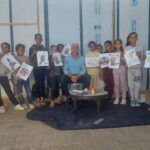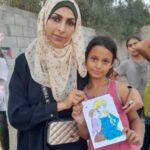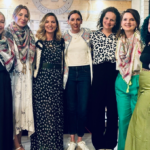Gaza’s normality
I read a report on the BBC website following a recent exchange of fire between Gaza’s and Israeli’s militants. And although there was much to credit the article, while I was there inside the community, the tired picture of Palestinians wanting to send their children to die against Israel, and the picture of normality in Gaza left me feeling that stereotypes were being unhealthily fed, and some questions which needed to be asked weren’t.
Rupert in his reporting had decided, either inadvertently or possibly through believing the perennial reporting of Palestinians as violent fanatics, to continue to feed the stereotype of the Gazans as a people hell bent on destruction of Israel. He talked to a man who had lost a son to Israeli bombardment, and reported how this man was prepared to lose his other children for the same cause. The implication was clear, and aligned well with the impression that much of the media continues to feed. Gazans are a people hell-bent on Israel’s destruction, and are fanatical, wanting to send their children to death for the cause.
But that was a statement bereft of context? For a father to make a comment like that would be the clearest reflection that he and his family are living in an environment where violent death through bombing is almost an expectation. That is the overriding sad state of affairs that deserves attention – what kind of a life must someone lead to make a statement like that, how does he end up living that kind of that kind of life, and what can be done so that he doesn’t live a life with that kind of expectation. And when he makes that statement, is it a reflection of a desire to have his children die for a cause, or could it be through a desperation that their lives may be snuffed out by bombardment at any minute regardless of anything he could do? Before making a statement that irresponsibly feeds a frenzy that wants to stereotype Gazans as a people fanatical about sending their children to die in war against Israel, how about meeting and reporting about the majority of fathers here? Fathers, like fathers and mothers the world over, not one of whom has children who they want to send to their death for any cause?
The other aspect, which many of us, myself included, are often guilty of, is the simple portrayal of Gaza as a place that is bombed and where life amongst the bombing has become a normality. For sure, there are many ways in which that is true. In many functional ways, with the elephant in the room of the Israeli and Egyptian siege aside, much functions normally. When bombs fall intermittently, as they have in my time here, rather than in near-carpet bomb fashion, as was the case over Christmas 2008 and most of January 2009, there is the semblance of normality for sure. Once you get over the screaming of the children, there is a very small pause of maybe even seconds, and then everyone resumes what they are doing. However, that is only a functional normality. On the surface, they will continue to walk and talk, drink their tea, argue, or whatever. But bit by bit, layers of emotions, tensions and expectations build that are far from normal or desirable. They grow out of a necessity to cope with an environment where massive violence, on a scale that very few of us have thankfully experienced, may come at any second.
And even that normality comes within the context of a man-made poverty. Gaza is not naturally impoverished. Gazans can grow much of their own food, have beaches that in better times would rival most other Mediterranean beaches, and are a people that is naturally industrious and deeply resourceful. However, they are living in a crippling siege that has meant that their only real lifeline are the tunnels out to Egypt. Food, clothing, electrical supplies, car parts, cement – most everything that a people needs to survive comes through these tunnels, as only a trickle is allowed through by Israel through the official crossing.
Two nights while I was here, I saw weddings taking place. Every day, Gazans marry. They fall in love. They have children. They drink tea and coffee. They argue. They fight. They kiss. They plant trees. They harvest watermelons. They make real houmous (not like the watery excuse of houmous that the Egyptians make, or the ‘khumus’ that the Israelis have stolen from them!). In other words, despite the siege and the continual threat or reality of war, they live lives with the full richness of interactions that we all have. And while that siege and war have their distinctive and definite impact on the society and psychology of her people, we should never pigeon hole and stereotype them any more than we would anyone else.






Leave a Reply